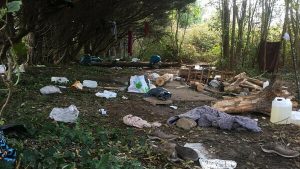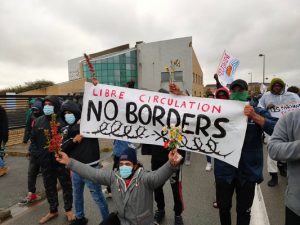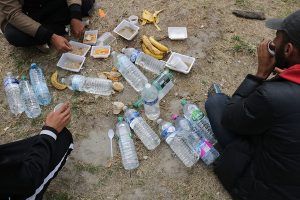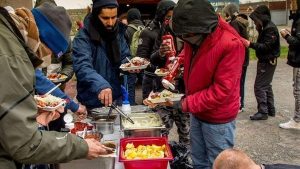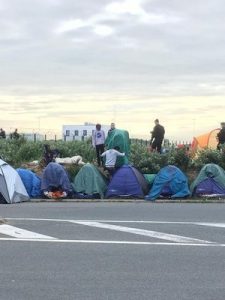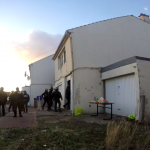Statement from Housing for All Calais
Since Friday 4 February, we have been occupying a building in Rue d’Ajaccio, which has been uninhabited for a year. This occupation took place within the framework of the commemoraction, an international day of mobilization initiated by the families and relatives of people who have died at the border, to denounce the murderous migration policies of the UK, France and the EU.
In Calais, about 1500 people are living on the streets in unacceptable living conditions. Displaced people occupy wastelands and have no access to basic services: housing, sanitation, water, food and medical care. The state imposes conditions of extreme precariousness and invisibility through illegal evictions every 48 hours, the theft of personal belongings by the police, the illegal dismantling of living sites without the possibility of defense in front of a judge, and recurrent police violence. The French and British governments, alongside Natacha Bouchard and all their other friends, have deliberately turned a political issue into a humanitarian crisis, keeping people who want to cross the border in a context of survival. [Read More]

